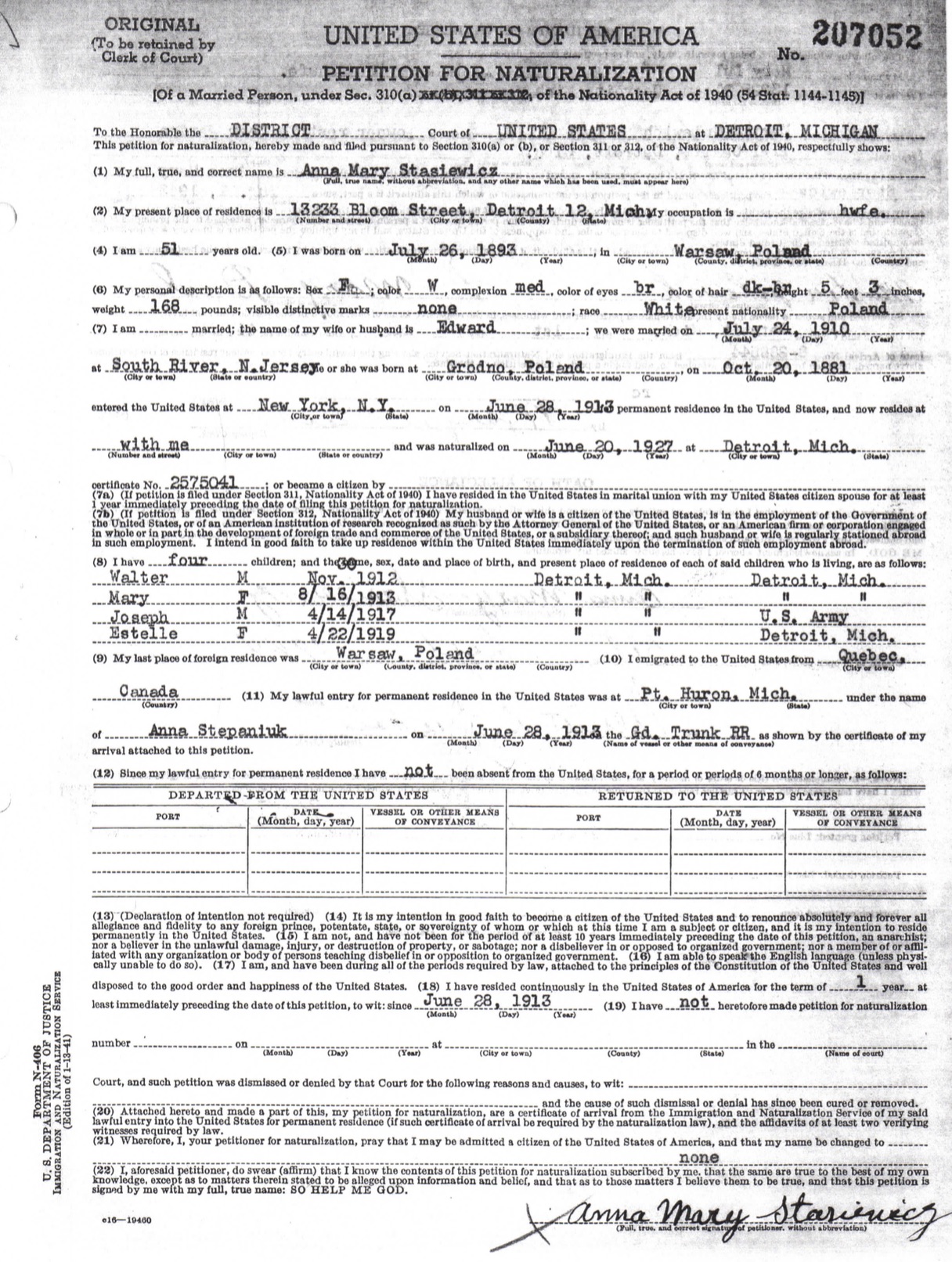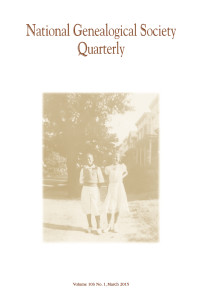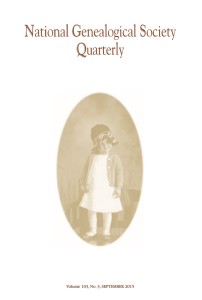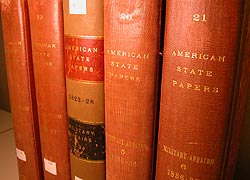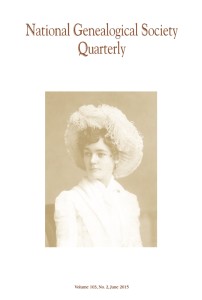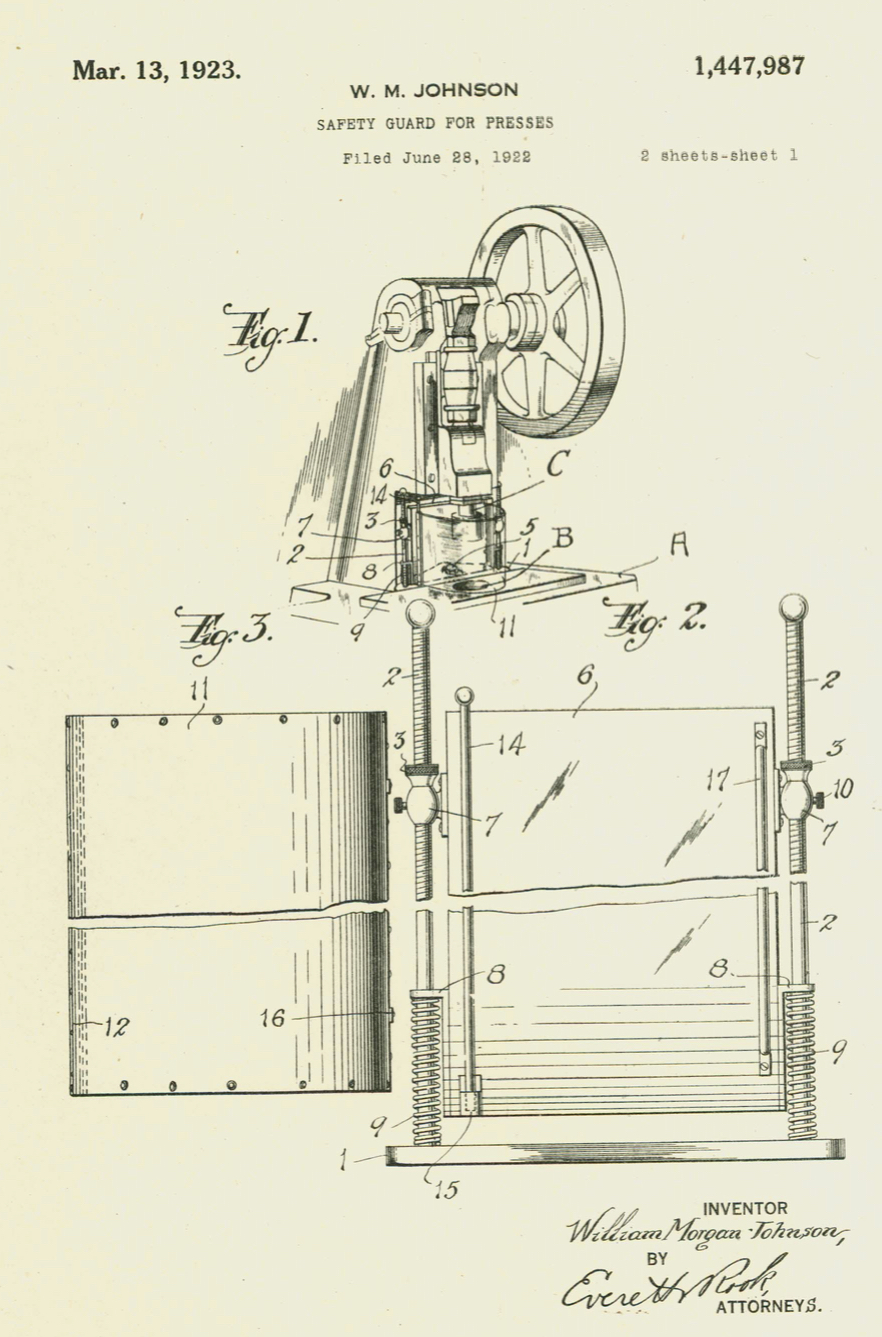Mar 2016
Using Indirect Evidence To Solve Genealogical Problems
When we are faced with challenging research problems, the ability to work with indirect evidence can be a valuable problem-solving skill. Indirect evidence is information that we analyze in the context of our research question and interpret as being relevant, even though it doesn’t directly provide us with an answer. A lack of direct evidence […]
Mar 2016
Records of the Works Progress Administration and Civilian Conservation Corps
In response to the Great Depression, Franklin D. Roosevelt introduced the New Deal, a series of domestic programs focused on relief for the poor and unemployed, economic recovery, and reformation of the nation’s financial system. Two of these programs—the Works Progress Administration (WPA) and the Civilian Conservation Corps (CCC)—employed millions of men and women and […]
Feb 2016
A Primer on United States Naturalization Records
Naturalization records can be difficult for genealogists to navigate. Researchers are often left wondering if they’ve searched for the right records in the right places, given the various types of naturalization records and courts that generated them. Genealogists who can grasp the basics of the naturalization process and the records it created will become better […]
Feb 2016
Resolving A Question of Identity in NGSQ
Successful research involves identifying a specific person of interest and developing a focused research question about that person. Genealogical research questions are usually centered on problems of identity, relationship, or circumstance. Most of the case studies published in the National Genealogical Society Quarterly (NGSQ) resolve questions of relationship—for example, identifying the parents of a specific […]
Jan 2016
The Genealogical Proof Standard In Practice
In the field of genealogy, the conclusion to a research question is considered proven when it meets the Genealogical Proof Standard (GPS). The GPS consists of five interdependent elements, each of which plays a role in ensuring a conclusion is credible: Reasonably exhaustive research Complete and accurate source citations for each information item Analysis and […]
Jan 2016
The American State Papers and United States Congressional Serial Set
The American State Papers (ASP) and the United States Congressional Serial Set (Serial Set) are multi-volume government publications containing reports and documents that record the activities of the United States Congress. An often-overlooked resource, the ASP and Serial Set can provide genealogists with valuable information to piece together details and context related to their ancestors’ […]
Dec 2015
Navigating the National Archives
The National Archives and Records Administration (NARA) is the agency responsible for maintaining and providing access to historic records created by the federal government. To successfully plan and execute research at NARA facilities, genealogists need a basic understanding of what types of records are held at NARA, and how they are arranged and organized.
Dec 2015
Considering the Law
As family historians, we use various types of historical records to link generations of our families together. In doing so, we often forget that these records were not created for genealogists. Many were created as a result of laws that were in effect years ago. To complete reasonably exhaustive research, we must consider the laws […]
Nov 2015
A Lesson in Reasonably Exhaustive Research
Genealogists who reconstruct their family histories must meet the Genealogical Proof Standard (GPS) to ensure that their conclusions are sound. The first element of the GPS is “reasonably exhaustive research—emphasizing original records providing participants’ information—for all evidence that might answer a genealogist’s question about an identity, relationship, event, or situation.”[1] In some instances, researchers may […]
Nov 2015
U.S. Patent Records as a Genealogical Resource
In 1790, the United States Congress passed a bill establishing the Patent Board, an entity responsible for conferring rights to inventors for their inventions, a process known as “issuing patents.” Prior to this time, colonies and states issued some patents, either as private acts or in accordance with state or colony-level laws, until the federal […]

